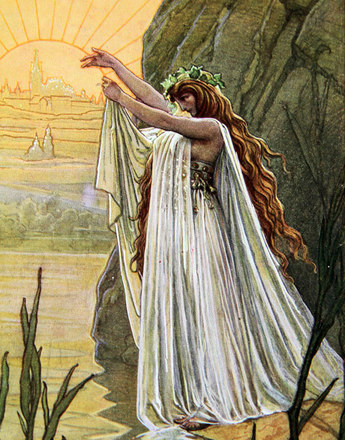-

Karl von Siegel: Medal on the foundation of the Ossoliński National Institute in Lemberg/Lviv in 1817, illustration
Copyright: Schloß Schönbrunn Kultur-und Betriebsges.m.b.H./Fotograf: Alexander E. Koller
-

Zygmunt Ajdukiewicz: His Majesty the Emperor Franz Joseph I on his journey through Galicia (1880), illustration
Copyright: Schloß Schönbrunn Kultur-und Betriebsges.m.b.H./Fotograf: Alexander E. Koller
Since a re-establishment of the Polish state was politically improbable in the foreseeable future, the Galician-Polish élite considered that co-existence within the Habsburg Monarchy was a fact that ought to be exploited as much as possible – until the time was ripe to regain its own state.
For the Polish élite, the demand for a reinforcement of the Polish element went hand in hand with political loyalty to Austria – for Vienna an acceptable form of cultural nationalism. Polish cultural life experienced a renaissance in the first decades of the nineteenth century. The heart of the cultural renaissance lay in the patrimonial national institute of the Ossolineum in Lviv (Lemberg), founded by Józef Maksymiljan Count Ossoliński (1827).
In view of Russia’s repressive policies in Congress Poland and the hopelessness of the prompt renaissance of a free Polish state, the Austrian Poles in Galicia saw themselves as protectors of Polish interests. When compared to the situation in the Prussian-German or Russian part of Poland the circumstances there were favourable for the development of the Polish language and culture.
The loyal Galicians practised a marriage of convenience with the Viennese Government under the slogan Ugody (Polish for agreements) and formed a reliable partner for Vienna in times of rampant nationalist extremism. Vienna showed its gratitude in far-reaching concessions: in 1869 Polish was declared the internal administrative language for the authorities and courts of law in Galicia. Polish became established as the educational language for the elementary and middle schools, and then, in 1870/71, it was also introduced as lecturing language at the Universities of Krakow and Lviv/Lemberg.
The outcome of the Polish-friendly measures was an autonomy for the land of Galicia under Polish domination. Finally, representatives of the Polish political scene also received a permanent seat reserved in the Austrian Central Government: the Poles provided two prime ministers in Alfred Józef Count Potocki and Kasimir Count Badeni and also a number of other ministers, including Agenor Count Gołuchowski, foreign minister from 1895-1906.
The shadow side of this tacit agreement between Vienna and Lviv/Lemberg was that the close cooperation of the Polish aristocracy with Vienna shored up the traditional power status of the aristocratic landed gentry, thus prolonging social and economic grievances. Galicia remained an agricultural country with an extreme concentration of land ownership in the hands of a few aristocratic lords of the manor. Despite rich natural resources and raw materials – by the end of the nineteenth century not only salt mining was in operation but also Galician oil was being tapped – the land had scarcely been touched by industrialisation. Because of overpopulation and need for land, Galicia became a classic emigration region. Hundreds of thousands left the country in the quest for a better future.
Even graver were the effects that the cementation of power in the hands of the Polish élites had on the situation of the Ruthenians, who remained second-class citizens and massively disadvantaged in political representation. In foreign politics the de-facto autonomy of the Austrian Poles was observed with scepticism by Germany and Russia, who operated decidedly anti-Polish policies in their territories.
Translation: Abigail Prohaska
Batowski, Henryk: Die Polen, in: Wandruszka, Adam/Urbanitsch, Peter (Hrsg.): Die Habsburgermonarchie 1848–1918, Band III: Die Völker des Reiches, Wien 1980, Teilband 1, 522–554
Hoensch, Jörg K.: Geschichte Polens. (3. Auflage), Stuttgart 1998
Křen, Jan: Dvě století střední Evropy [Zwei Jahrhunderte Mitteleuropas], Praha 2005
Rumpler, Helmut: Eine Chance für Mitteleuropa. Bürgerliche Emanzipation und Staatsverfall in der Habsburgermonarchie [Österreichische Geschichte 1804–1914, hrsg. von Herwig Wolfram], Wien 2005
-
Chapters
- Poles and Ruthenians in the Habsburg Monarchy
- At the Margins of the Empire: Galicia and Bukovina
- The struggle of the Poles for their nation: Poland is not yet lost!
- Compromise with Vienna: Polish Autonomy in Galicia
- The Poles in the First World War: a Nation as Football for the Great Powers
- The Great Unknown: The Ruthenians
- Approach and Rejection: The Ruthenians between Austria and Russia




